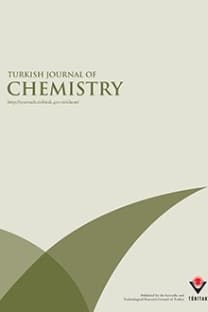Density functional theory-supported studies of structural and electronic properties of substituted-phenol derivatives synthesized by efficient O- or C-arylation via Chan--Lam or Suzuki cross-coupling reactions
Diaryl ethers, bis-arylated derivatives, Chan--Lam reaction, Suzuki cross-coupling reaction, density functional theory,
- ISSN: 1300-0527
- Yayın Aralığı: Yılda 6 Sayı
- Yayıncı: TÜBİTAK
Filiz BORAN, Sevil Çetinkaya GÜRER
Alaattin ŞEN, Buket AYAR, Anil YILMAZ, Özden Özgün ACAR, Gurbet Çelik TURGUT, Gülaçti TOPÇU
Nomnotho JIYANE, Myalowenkosi İ SABELA, Suvardhan KANCHI, Phumlane S MDLULI, Mavis XHAKAZA, Olayide A ARODOLA, Krishna BISETTY
Meliha Burcu GÜRDERE, Neşe DÜRÜ, Yakup BUDAK, Mustafa CEYLAN
Pelin ERDEM, Paniz TASHAKKORI, Melek MERDİVAN, Serap Seyhan BOZKURT
Reduced graphene oxide supported tin oxide-boron oxide flexible paper anodes for Li-ion batteries
Hilal KÖSE, Şeyma DOMBAYCIOĞLU, Ali Osman AYDIN, Hatem AKBULUT
Extraction of high-purity silica from rice husk via hydrochloric acid leaching treatment
Kydyr ASKARULY, Kalampyr BEKSEITOVA, Zhanar SARTOVA, Seitkhan AZAT
Anıl YILMAZ, Alaattin ŞEN, Buket AYAR, Gurbet Çelik TURGUT, Özden Özgün ACAR, Gülaçtı TOPÇU
